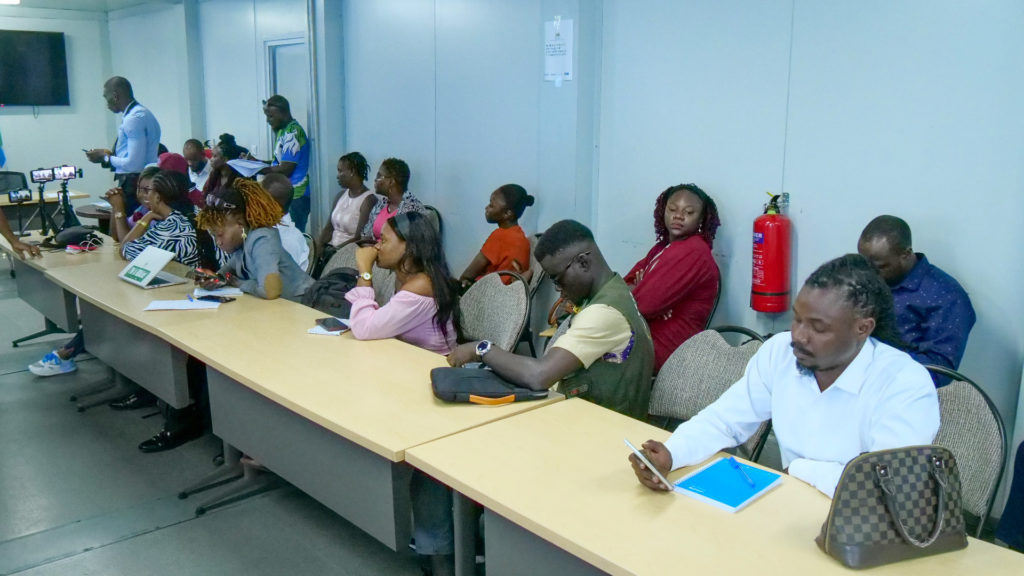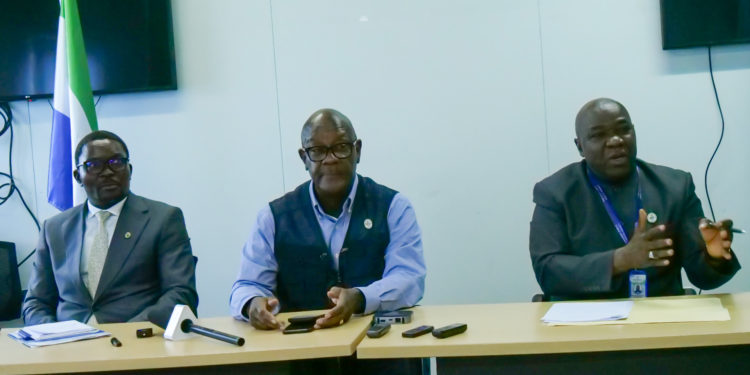By Morrie Koroma
The Sierra Leone government and its partners have expressed commitment to protect the population in the face of spiraling cases of Mpox in Africa.
Officials announced on Tuesday that the country has put in place comprehensive preparedness and effective communication to prevent the spread of the virus in the country.
The Africa Centres for Disease Control and Prevention (Africa CDC) declared Mpox a Public Health Emergency of Continental Security (PHECS) on August 13. That was followed by a declaration by the World Health Organization (WHO) of the outbreak a Public Health Emergency of International Concern (PHEIC).
Mpox has now spread to at least 13 African countries, including previously unaffected nations such as Burundi, Kenya, Rwanda, and Uganda. These countries have reported 2,863 confirmed cases and 517 deaths in 2024 alone, according to WHO data, with the majority of cases and fatalities occurring in the Democratic Republic of the Congo (DRC).
Across the continent, suspected cases have surged past 17,000, a significant increase from 7,146 cases in 2022 and 14,957 cases in 2023.
In light of these alarming developments, Sierra Leone, which learned valuable lessons from its experience during the 2014-2016 West African Ebola outbreak and managed to mitigate the impact of COVID-19, says it is determined to prevent Mpox from reaching its shores.
The government said it is working diligently, in collaboration with local and international partners, to ensure the country is well-prepared.
All these were disclosed at a press briefing on Tuesday, at the Emergency Operations Center (EOC) Headquarters on Wilkinson Road, Freetown. The presser was held to update the public on the country’s preparedness for Mpox, according to officials.
Dr. Innocent Nuwagira, World Health Organization (WHO) Country Representative, highlighted the severity of the outbreak in the affected countries.
“To date, approximately 15,600 cases and 537 deaths have been recorded across all affected countries since January this year,” he stated. He also emphasized the close collaboration between WHO, the Ministry of Health, the National Public Health Agency (NPHA), and other stakeholders in strengthening Sierra Leone’s preparedness measures.
Prof. Foday Sahr, Executive Director of NPHA, provided an in-depth overview of the country’s readiness to tackle the threat.
“As of today, there are no confirmed Mpox cases in Sierra Leone,” he said.
“However, we recognize the potential risk and have taken proactive steps to safeguard our population. Our surveillance systems at all points of entry, including airports, seaports, and border crossings, have been enhanced. Our health personnel are well-trained and ready to identify and respond to potential cases. Additionally, we have strengthened our laboratory capabilities to ensure rapid and accurate diagnosis,” he added.

Prof. Sahr also emphasized the importance of public awareness as a cornerstone of the country’s strategy, noting that they are working closely with communities, the media, and local leaders to spread accurate information about Mpox, its symptoms, and preventive measures.
“Our goal is to equip every citizen with the knowledge they need to protect themselves and their loved ones,” he said.
Minister of Health, Dr. Austin Demby, echoed these sentiments, underscoring the critical role of the media in preventing the spread of misinformation and ensuring that accurate information reaches the public.
“The government depends on the media to convey the correct message to citizens, so those who seek to spread false information about the disease will not succeed,” Dr. Demby stated. He urged citizens to remain vigilant and to promptly report any symptoms, such as rashes, to the nearest health facility.






















